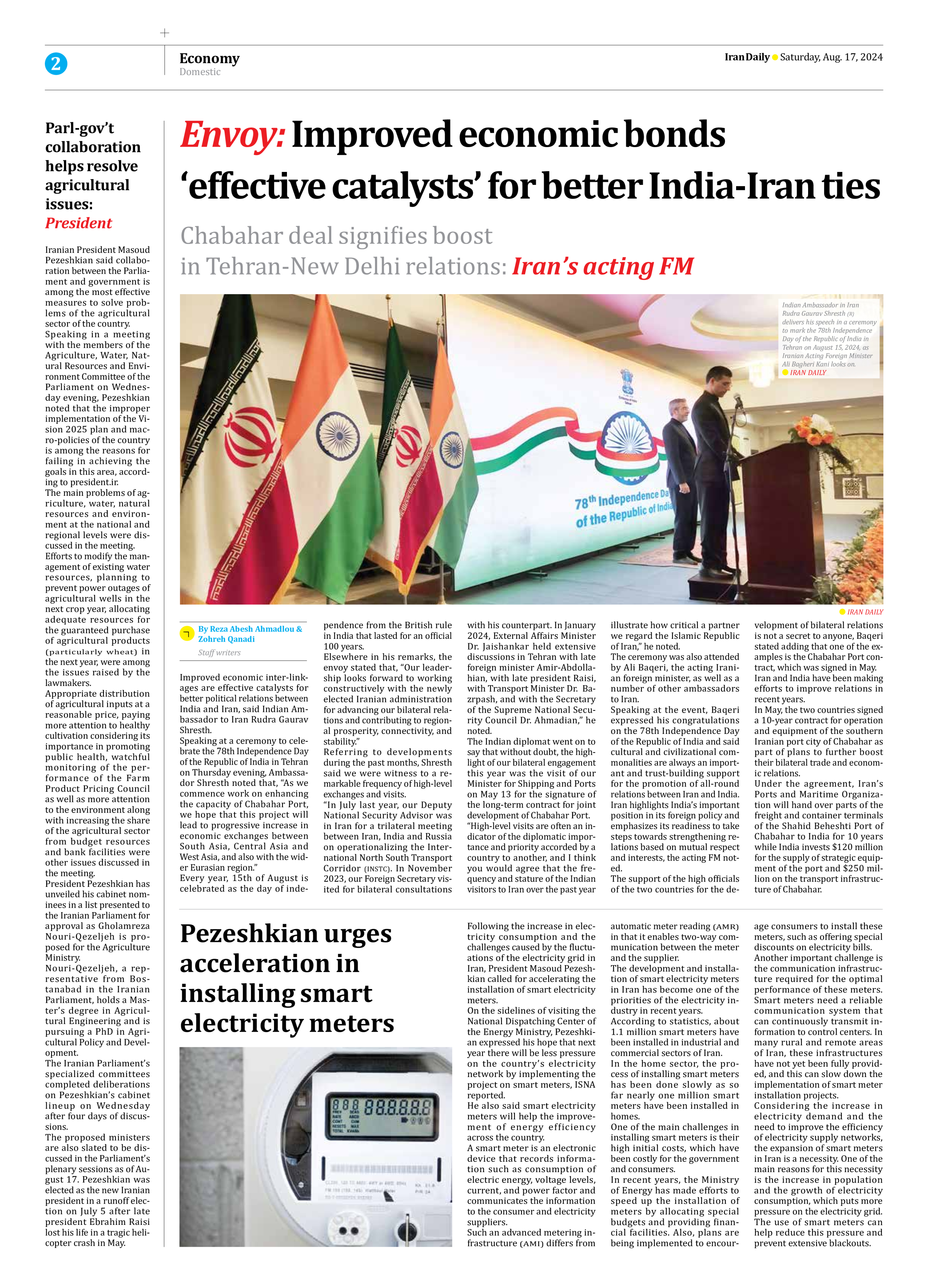
Copy in clipboard...
Pezeshkian urges acceleration in installing smart electricity meters
On the sidelines of visiting the National Dispatching Center of the Energy Ministry, Pezeshkian expressed his hope that next year there will be less pressure on the country’s electricity network by implementing the project on smart meters, ISNA reported.
He also said smart electricity meters will help the improvement of energy efficiency across the country.
A smart meter is an electronic device that records information such as consumption of electric energy, voltage levels, current, and power factor and communicates the information to the consumer and electricity suppliers.
Such an advanced metering infrastructure (AMI) differs from automatic meter reading (AMR) in that it enables two-way communication between the meter and the supplier.
The development and installation of smart electricity meters in Iran has become one of the priorities of the electricity industry in recent years.
According to statistics, about 1.1 million smart meters have been installed in industrial and commercial sectors of Iran.
In the home sector, the process of installing smart meters has been done slowly as so far nearly one million smart meters have been installed in homes.
One of the main challenges in installing smart meters is their high initial costs, which have been costly for the government and consumers.
In recent years, the Ministry of Energy has made efforts to speed up the installation of meters by allocating special budgets and providing financial facilities. Also, plans are being implemented to encourage consumers to install these meters, such as offering special discounts on electricity bills.
Another important challenge is the communication infrastructure required for the optimal performance of these meters. Smart meters need a reliable communication system that can continuously transmit information to control centers. In many rural and remote areas of Iran, these infrastructures have not yet been fully provided, and this can slow down the implementation of smart meter installation projects.
Considering the increase in electricity demand and the need to improve the efficiency of electricity supply networks, the expansion of smart meters in Iran is a necessity. One of the main reasons for this necessity is the increase in population and the growth of electricity consumption, which puts more pressure on the electricity grid. The use of smart meters can help reduce this pressure and prevent extensive blackouts.







